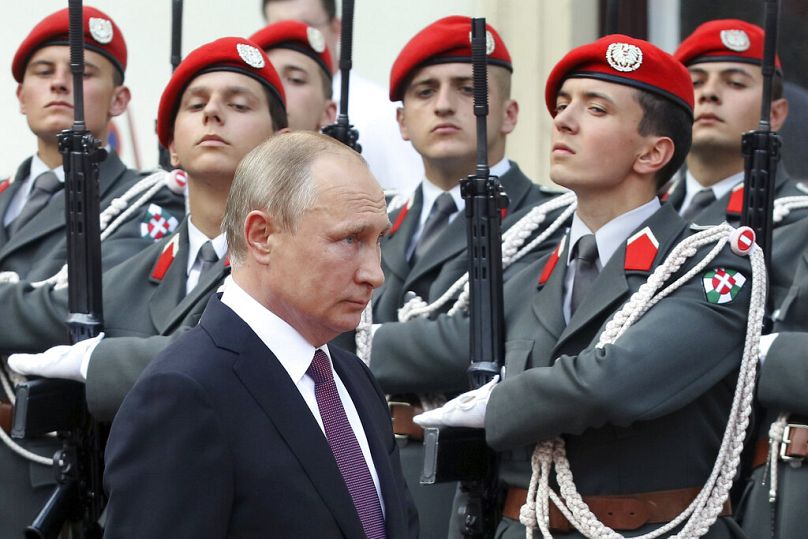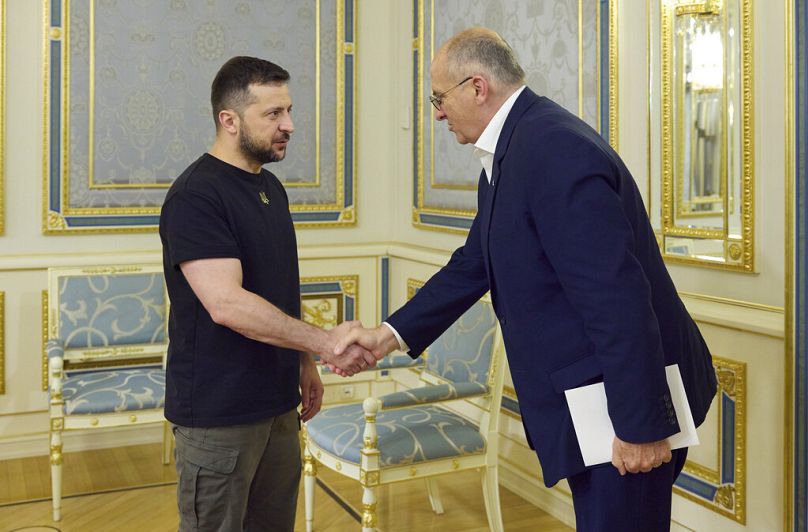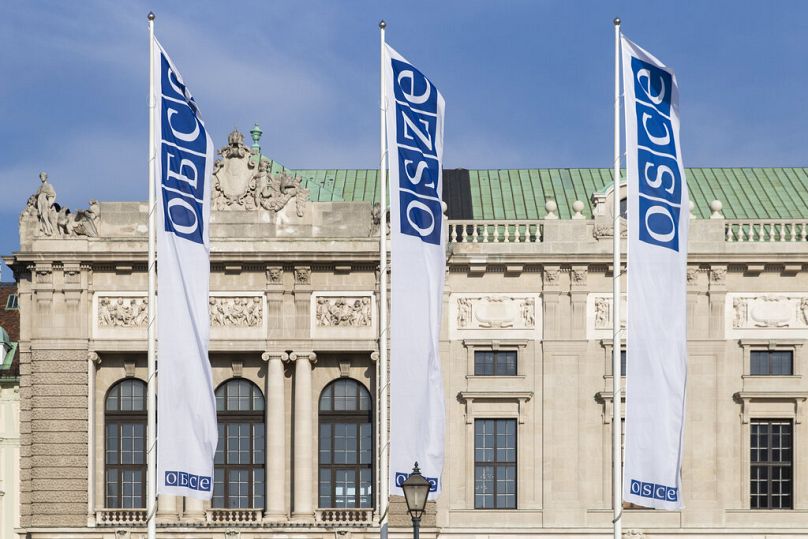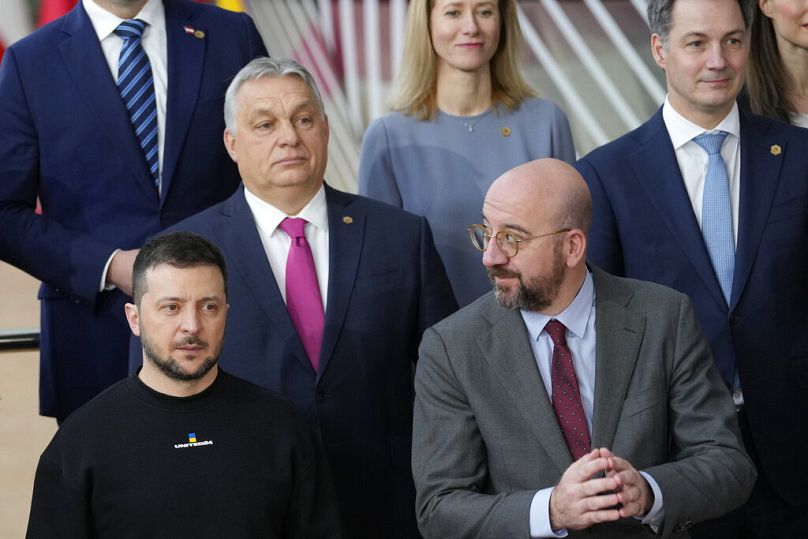It is impossible to stay indifferent and not react when you see an EU member state acting against the interests and values of the Union, MEP Vlad Gheorghe writes.
Once again, Austria put the integrity and solidarity of the European Union under duress.
 ADVERTISEMENT
ADVERTISEMENT
 ADVERTISEMENT
ADVERTISEMENT
Late last year, its government did so by arbitrarily denying access to Romania and Bulgaria to the Schengen area.
Now, by inviting Russian deputies who are under EU sanctions and barred from entering the bloc, in order to participate in the meeting of the Organisation for Security and Cooperation in Europe (OSCE).
The meeting in Vienna is set to be held on 23 and 24 February, exactly one year after the start of Russia's war against Ukraine.
And the 15 Russian Duma members who have been granted visas are not on the EU sanction list by random chance.
They are among those bearing the brunt of responsibility for Russia’s brutal, unprovoked, and unjustified full-scale invasion of its neighbour.
Yet today, Austria is ready to welcome them in Vienna, in an extremely embarrassing move for an EU member state.
Interests and values of the Union are at stake
When it comes to individuals who are placed on the sanctions list, Brussels applies both economic and diplomatic restrictive measures, meaning that the member states are expected to freeze their assets and apply a travel ban.
Any derogation from this principle, even if done by just one member state, is a slap in the face of anyone who believes in European values and their protection.
Personally, as a Member of the European Parliament, I feel appalled by Austria’s decision.
It is impossible to stay indifferent and not react when you see an EU member state acting against the interests and values of the Union.
Therefore, today I formally asked the Council of the EU to address this issue, and I sincerely hope it will react as a matter of urgency.
We cannot allow similar incidents to ruin something which was so hard to build and remains so dear to us all: common EU foreign and security policy.
Would you rather sit at the table with Russia or Ukraine?
Austria took the decision to invite the Russian delegation to the OSCE assembly meeting, knowing that it would cause an international outcry.
Several member states have already warned that they could boycott it as a result. And most importantly — Ukraine will.
If the Russian delegation attends OSCE, I think all the rest of the organisation's members will have to boycott as well.
If Austria prefers to sit at the table with Russia and not with Ukraine, I am afraid it will have to face the consequences under the EU legal framework.
In my address to the Council, I asked to put into question the voting rights of the representatives of the Austrian government in the EU's strategic and crisis-solving body, as well as its other rights.
This question is inevitable if you consider that Austria, through this move, disregarded EU values listed under Article 2.
Famously, this article has enshrined "values of respect for human dignity, freedom, democracy, equality, the rule of law and respect for human rights" as the Union's most essential tenets.
Providing support to participants in the act of aggression — against the will of the bloc — is at odds with most, if not all, of those.
Possible actions against those found in violation of Article 2 of the Treaty are clearly defined under Article 7 and can lead to the suspension of voting rights, for one.
A meeting in Vienna does not represent extreme circumstances
One could argue that the derogation from the EU sanctions is legitimate and foreseen by the EU legal framework.
To that, I would reply that in this case, we speak about blatant abuse of the derogation procedure, which should be only applied in extreme circumstances, such as for humanitarian aid delivery.
Gathering at a meeting of an organisation — which Russia has continuously disrespected despite its role as the main arbiter on the ground between the occupied territories of Ukraine and Kyiv since 2014 — does not qualify as such.
On the contrary, it shows a considerable lack of self-respect, bringing Austria's famed neutrality into question as well.
Being neutral, in my view, which I believe is shared by many, does not mean letting someone walk all over you.
That, in turn, makes me wonder about Vienna's motivation for making this decision.
Why open your doors to enemies and close them to friends?
If Austria sent this invitation because it felt pressure from Russia, it would be an alarming sign. If Austria took this decision of its own free will, again, it would also be a very alarming sign.
Under the current framework, a member state which decides to apply a derogation from sanctions should inform the European Commission and all other EU member states of its choice.
Unfortunately, this framework does not foresee any reaction, discussion or assessment of such decisions.
This is the reason why Austria feels impunity in inviting Russia.
It is also the reason why the Council needs to take a position on that and even consider the revision of the Council Regulation on sanctions against Russia to prevent further “unchecked” and dangerous derogations.
Finally, as a Romanian MEP who went to Bucha and Irpin and saw all the atrocities, who set up a volunteer group to help hundreds of thousands of Ukrainians in distress, who works on the EU budget and tries to do the impossible to confiscate the Russian criminal assets: I simply cannot comprehend how Austria could justify opening its doors to enemies and closing them to friends.
Vlad Gheorghe (Renew Europe) is a Member of the European Parliament from Romania. He is also the founder of the Uniți pentru Ucraina — Об'εднанi за Украiну — United for Ukraine volunteer group.
At Euronews, we believe all views matter. Contact us at view@euronews.com to send pitches or submissions and be part of the conversation.














